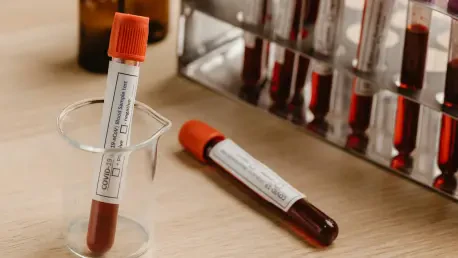
For the tens of thousands of individuals undergoing breast-conserving surgery each year, the profound relief of having a tumor removed is too often overshadowed by the daunting possibility of a second operation. The persistent challenge of ensuring every last cancerous cell is excised during the

As governments worldwide encourage citizens to embrace digital platforms for essential services, the underlying promise is one of efficiency and security, yet a recent analysis of the Oyo State Health Insurance Agency's (OYSHIA) website raises serious questions about this fundamental pact of trust.

For millions of families, the journey to an Alzheimer's diagnosis has long been a frustrating and arduous path paved with uncertainty, invasive procedures, and prolonged waiting periods for definitive answers. The traditional diagnostic toolkit, heavily reliant on expensive brain scans and

The landscape of clinical research is currently navigating a complex and often fragmented technological terrain, where sponsors and contract research organizations (CROs) frequently juggle a patchwork of disparate systems to manage the lifecycle of a trial. This siloed approach creates significant

In the sterile, controlled environments of medical laboratories where life-saving diagnoses are made, an invisible threat has long been an accepted part of the daily routine for countless healthcare professionals. This danger comes in the form of hazardous chemicals embedded within the very

An abnormal result from a routine cervical cancer screening can be a profoundly distressing experience, but for many in Oregon, that anxiety is immediately compounded by an unexpected and often insurmountable financial obstacle. This critical juncture, where timely follow-up is essential for a